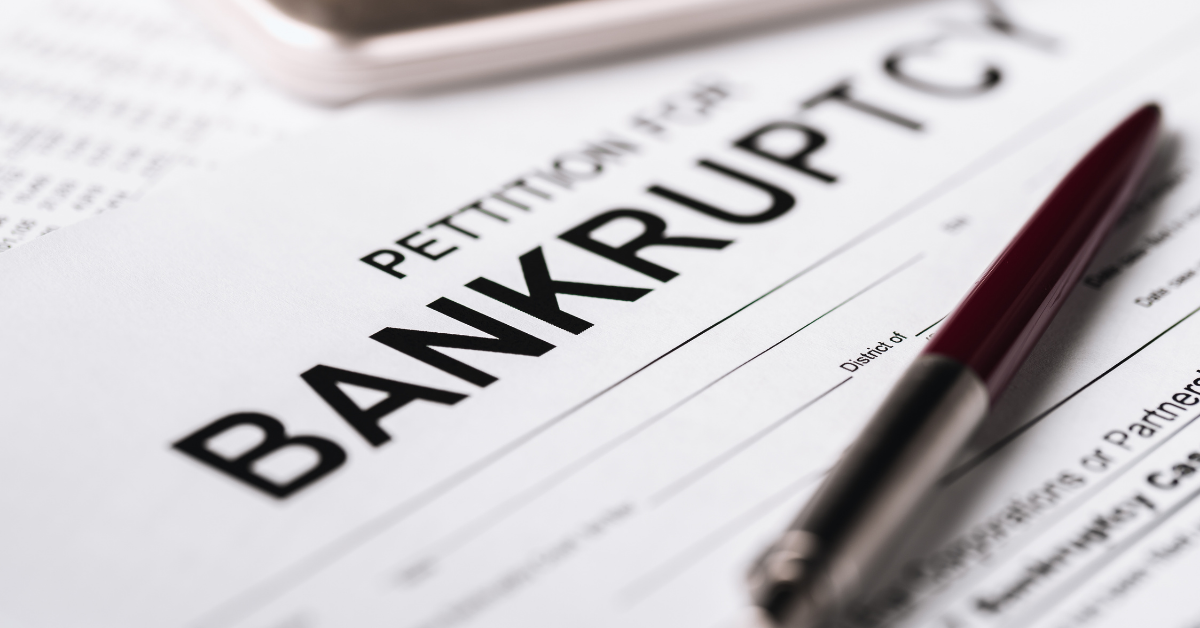Facing financial difficulties can be overwhelming, and the decision to file for bankruptcy is not an easy one. You may be worried about the impact bankruptcy will have on your credit and future financial opportunities. But don’t worry – bankruptcy doesn’t mean the end of the world. In fact, it can be a valuable tool for regaining control of your financial situation. In this article, we will discuss what filing bankruptcy does to your credit and provide tips on how to rebuild your credit after bankruptcy.
What Does Filing Bankruptcy Do to Your Credit: The Impact
Filing for bankruptcy will undoubtedly have an impact on your credit. However, it’s essential to remember that the damage is not permanent, and with the right strategies, you can rebuild your credit over time. Here’s what you need to know about the effects of bankruptcy on your credit:
- Bankruptcy can negatively impact credit scores and make borrowing more difficult.
- A bankruptcy record will remain on your credit report for 7-10 years, depending on the type of bankruptcy filed.
- People with low credit scores may see an increase after filing for bankruptcy, as the elimination of debt can improve their debt-to-income ratio.
- Credit scores can recover with proper financial management and on-time payments.
Understanding Different Types of Bankruptcy and Their Effects on Credit

There are two main types of personal bankruptcy: Chapter 7 and Chapter 13. Both have similar effects on your credit, but the process and requirements for each differ.
Chapter 7 Bankruptcy
Chapter 7 bankruptcy, also known as liquidation bankruptcy, eliminates most unsecured debts, such as credit card debt and medical bills. This type of bankruptcy stays on your credit report for 10 years. However, it’s worth noting that the impact of bankruptcy on your credit score will lessen over time.
Chapter 13 Bankruptcy
Chapter 13 bankruptcy involves creating a repayment plan to pay off a portion of your debts over a period of 3-5 years. This type of bankruptcy stays on your credit report for 7 years. Like Chapter 7, the impact on your credit score will decrease over time as you make consistent monthly payments and demonstrate responsible financial behavior.
Rebuilding Your Credit After Bankruptcy

While bankruptcy does have a negative impact on your credit, it’s not the end of the road. With dedication and the right strategies, you can rebuild your credit after bankruptcy. Here are some tips to help you get started:
- Review your credit report: After your bankruptcy is discharged, make sure to review your credit report to ensure that all debts included in the bankruptcy are accurately reported as discharged or included in bankruptcy with a zero balance.
- Make on-time payments: Your payment history is a significant factor in your credit score. Focus on making all of your monthly payments on time, including any remaining debt obligations not discharged in bankruptcy.
- Use a secured credit card: A secured credit card requires an upfront security deposit, which acts as your credit limit. By using a secured credit card responsibly and making on-time payments, you can demonstrate good financial habits and rebuild your credit.
- Consider credit builder loans: Credit builder loans are designed to help individuals with low or no credit build their credit history. These loans are typically small and require on-time payments over a set period, with the lender reporting your payment history to the credit bureaus.
- Monitor your credit: Keep an eye on your credit reports and scores to track your progress and identify any potential issues or inaccuracies.
The Importance of Seeking Professional Guidance
Filing for bankruptcy is a complex legal process, and it’s essential to work with an experienced bankruptcy attorney to ensure that you make the best decisions for your unique financial situation. An attorney can help you navigate the bankruptcy process, provide guidance on rebuilding your credit, and ultimately, help you regain control of your finances.
Strategies for Rebuilding Credit After Bankruptcy
Rebuilding your credit after bankruptcy may seem daunting, but with the right strategies and dedication, you can see significant improvements over time. Here are some additional steps to consider when working on rebuilding your credit after bankruptcy:
Create a Budget and Stick to It
One of the most important steps in rebuilding your credit is to create a strict budget and stick to it. This will help you manage your finances more effectively and ensure that you can make all of your monthly payments on time. Additionally, adhering to a budget can help you avoid accumulating new debt, which is crucial for maintaining and improving your credit.
Diversify Your Credit Mix
Having a diverse mix of credit accounts can help improve your credit score. This includes a mix of revolving credit (such as credit cards) and installment loans (such as car loans or personal loans). As you work on rebuilding your credit, consider adding different types of credit accounts to your credit portfolio, as long as you can manage them responsibly.
Keep Credit Card Balances Low
High credit card balances can negatively impact your credit score. As you work on rebuilding your credit, aim to keep your credit card balances low, ideally below 30% of your available credit limit. This will help improve your credit utilization ratio, which is a significant factor in determining your credit score.
Be Patient and Persistent
Rebuilding credit after bankruptcy takes time and patience. It’s essential to remain persistent in your efforts and not become discouraged by setbacks. Remember that the impact of bankruptcy on your credit score will lessen over time as you demonstrate responsible financial behavior and make on-time payments.
The Role of Credit Bureaus in Your Credit Recovery
Credit bureaus play a crucial role in your credit recovery journey after bankruptcy. These organizations are responsible for collecting and maintaining credit information on consumers and creating credit reports. The three major credit bureaus in the United States are Equifax, Experian, and TransUnion. It’s essential to regularly monitor your credit reports from these bureaus to ensure the accuracy of the information and track your progress in rebuilding credit.
Disputing Errors on Your Credit Reports
Errors on your credit reports can negatively impact your credit scores, so it’s crucial to regularly review your reports and dispute any inaccuracies. You can request a free copy of your credit report from each of the three major credit bureaus once every 12 months on various websites. If you find any errors, you can dispute them directly with the credit bureaus, who are required by law to investigate and correct any inaccuracies.
Using Secured Credit Cards and Credit Builder Loans to Rebuild Credit
Secured credit cards and credit builder loans are two financial tools that can help you rebuild your credit after bankruptcy. Both options require you to demonstrate responsible borrowing and repayment habits, which can positively impact your credit scores over time.
Secured Credit Cards
A secured credit card is a type of credit card that requires an upfront security deposit, which serves as collateral for the credit line. The deposit amount typically determines your credit limit. By using the secured credit card responsibly and making on-time payments, you can demonstrate good financial behavior and improve your credit scores. After a period of responsible use, you may be able to upgrade to an unsecured credit card and have your security deposit refunded.
Credit Builder Loans
Credit builder loans are small loans designed specifically to help individuals with low or no credit scores establish a positive credit history. With a credit builder loan, the lender deposits the loan amount into a savings account, which you cannot access until you have repaid the loan in full. As you make on-time payments, the lender reports your payment history to the credit bureaus, helping to improve your credit scores.
How Bankruptcy Affects Your Ability to Obtain New Credit
One of the concerns people have when considering bankruptcy is how it will affect their ability to obtain new credit in the future. While it’s true that bankruptcy can make it more challenging to secure new credit, it’s not impossible. Lenders may view you as a higher-risk borrower due to the bankruptcy filing, which may result in higher interest rates and stricter lending requirements.
However, as you rebuild your credit and demonstrate responsible financial behavior, you may find that your ability to obtain new credit improves over time. It’s essential to be cautious when applying for new credit accounts after bankruptcy, as taking on too much new debt can negatively impact your credit scores and financial situation. Instead, focus on maintaining a positive payment history and gradually adding new credit accounts as needed.
What Does Filing Bankruptcy Do to Your Credit: Frequently Asked Questions
How long does a bankruptcy stay on my credit report?
A Chapter 7 bankruptcy will remain on your credit report for 10 years, while a Chapter 13 bankruptcy will stay on your report for 7 years.
Can I still get a loan or credit card after filing for bankruptcy?
Yes, it is possible to obtain new credit after filing for bankruptcy. However, you may face higher interest rates and stricter lending requirements due to the negative impact of bankruptcy on your credit score.
How can I improve my credit score after bankruptcy?
To improve your credit score after bankruptcy, focus on making on-time payments, keeping credit card balances low, diversifying your credit mix, and maintaining a positive payment history.
What debts are not dischargeable in bankruptcy?
Some debts, such as child support, alimony, certain tax debts, and most student loans, are generally not dischargeable in bankruptcy. Consult with a bankruptcy attorney to determine which of your debts may be discharged.
Can I remove a bankruptcy from my credit report?
Bankruptcy cannot be removed from your credit report before the required time period has passed (7 years for Chapter 13 and 10 years for Chapter 7). However, you can work on rebuilding your credit during this time to mitigate the impact of the bankruptcy on your credit score.
How often can I file for bankruptcy?
You can file for Chapter 7 bankruptcy once every eight years. For Chapter 13 bankruptcy, you can file again after two years from the previous filing date.
Contact Us to Learn More About Bankruptcy and Your Credit

If you’re struggling with debt and considering bankruptcy, it’s essential to consult with an experienced bankruptcy attorney to discuss your options and determine the best course of action for your specific situation. At LSS Law, we’re committed to helping you remove the financial burden and open the door to a brighter future. Contact us today to schedule a no-cost Bankruptcy Strategy Session at our Fort Lauderdale or Miami locations. You can reach us by phone at (954) 466-0541 or through our contact page.






